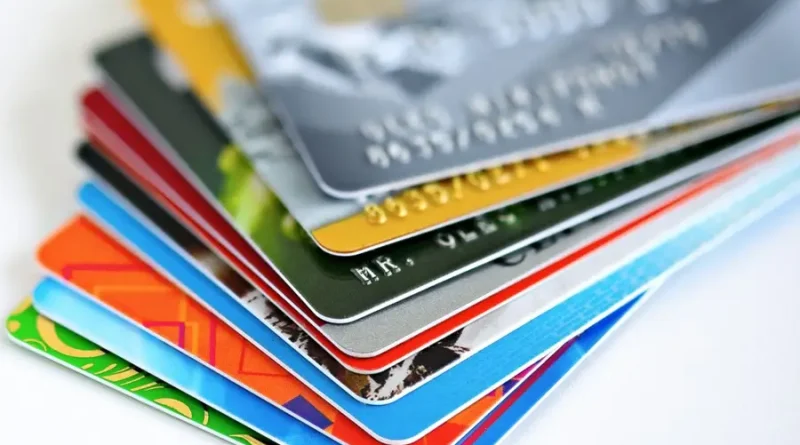Managing multiple credit cards can seem overwhelming, but it’s essential for maintaining good financial health and preserving your credit score. Having several cards isn’t necessarily a bad thing if you manage them responsibly. In fact, when used wisely, multiple credit cards can help you build credit, maximize rewards, and provide financial flexibility. However, improper management can lead to overspending, missed payments, and a lower credit score.
Anúncios
In this blog post, we’ll provide ten essential tips on how to handle multiple credit cards without negatively impacting your credit in the US. Mastering these strategies will help you enjoy the benefits of multiple credit cards while avoiding common pitfalls.
With these tips, you’ll be well on your way to effectively managing multiple credit cards. Each strategy is designed to ensure that you stay organized, pay your bills on time, and ultimately, keep your credit score in good standing. Let’s dive in and explore each of these ten tips in more detail.
Anúncios
Keep Track of Your Balances and Due Dates

It’s crucial to stay on top of your credit card balances and due dates. One way to do this is by creating a spreadsheet or using a financial app that consolidates all of your accounts in one place. This will help you monitor your spending and ensure timely payments.
Knowing your balances can prevent you from overspending and help you maintain a low credit utilization ratio, which is important for your credit score. Additionally, setting up notifications or reminders for due dates can help you avoid late payments, which can have a negative impact on your credit.
Focus on Paying Off High-Interest Debt First
If you have credit cards with varying interest rates, prioritize paying off those with the highest interest rates first. This approach, known as the avalanche method, can save you money in the long run by reducing the amount of interest you’ll need to pay over time.
Paying off high-interest debt first can also free up more of your budget to tackle lower-interest balances. Make at least the minimum payment on all your cards to avoid late fees and penalties, then allocate any extra funds toward the high-interest cards.
Avoid Maxing Out Your Cards
Maxing out your credit cards can have a detrimental effect on your credit score. It’s essential to keep your credit utilization ratio low, ideally below 30% of your total available credit. This ratio is a significant factor in determining your credit score.
If you’re consistently using a large portion of your available credit, it can signal to lenders that you’re overextending yourself financially. This could lead to a higher likelihood of missed payments and ultimately result in a lower credit score.
Set Up Automatic Payments
One of the easiest ways to ensure you never miss a payment is to set up automatic payments for your credit cards. Most banks and credit card issuers offer an auto-pay feature that allows you to schedule payments directly from your checking account.
By setting up automatic payments, you can guarantee that your bills are paid on time, every time. This can help you avoid late fees, penalties, and the potential negative impact on your credit score.
Monitor Your Credit Reports Regularly
Regularly checking your credit reports is essential for managing multiple credit cards without hurting your credit score. By monitoring your reports, you can identify any errors or discrepancies that could negatively impact your credit.
You’re entitled to a free credit report from each of the three major credit bureaus (Experian, Equifax, and TransUnion) once a year. Take advantage of this by staggering your requests throughout the year, so you can review your credit report every four months.
Use Each Card Strategically
Utilize each of your credit cards for specific types of purchases to maximize their benefits and rewards. For example, you might use one card for groceries, another for gas, and a third for travel expenses. This can help you take advantage of various rewards programs and cash back opportunities.
By using your cards strategically, you can also avoid concentrating too much debt on a single card, which helps maintain a low credit utilization ratio. Additionally, using each card regularly ensures that none of your accounts become inactive, which can also negatively impact your credit score.
Avoid Frequent Credit Inquiries
Each time you apply for a new credit card, a hard inquiry is made on your credit report, which can temporarily lower your credit score. To minimize this impact, avoid applying for new credit too frequently.
Instead, focus on making the most of the credit cards you already have. If you find that you need a new card for specific benefits or rewards, research thoroughly and choose the best option for your needs to minimize the number of applications you submit.
Keep Older Accounts Open
The length of your credit history is a key factor in determining your credit score. Closing older credit card accounts can shorten your credit history and reduce your overall available credit, leading to a higher credit utilization ratio.
Unless you have a compelling reason to close a credit card (such as high fees or lack of use), consider keeping older accounts open to maintain your credit history and score.
Establish a Budget and Stick to It
Managing multiple credit cards successfully requires disciplined spending. Establish a budget that includes all your credit card payments, ensuring you don’t spend more than you can afford to pay off each month.
Tracking your expenses and setting spending limits for each card can help prevent excessive debt and financial strain. Budgeting apps and online tools can make it easier to monitor and control your spending.
Seek Professional Advice if Needed
If you’re struggling to manage multiple credit cards or find yourself overwhelmed with debt, consider seeking financial advice from a credit counselor or financial advisor. Many nonprofit organizations offer free or low-cost credit counseling services that can help you develop a personalized debt management plan.
Professional guidance can provide valuable insights and strategies to improve your financial health while ensuring that you manage your credit responsibly.
Final Thoughts
Managing multiple credit cards can be challenging, but with the right strategies and a proactive approach, it’s entirely possible to do so without harming your credit score. By keeping track of your balances and due dates, focusing on paying off high-interest debt, avoiding maxing out your cards, and using each card strategically, you can maintain control over your finances and protect your credit.
Additionally, setting up automatic payments, monitoring your credit reports, keeping older accounts open, avoiding frequent credit inquiries, establishing a budget, and seeking professional advice when needed can further ensure your success in managing multiple credit cards.
Remember, the key is to stay organized, be disciplined, and continually review your financial habits to make any necessary adjustments. With these best practices in place, you can enjoy the benefits of multiple credit cards while maintaining a strong and healthy credit profile.
